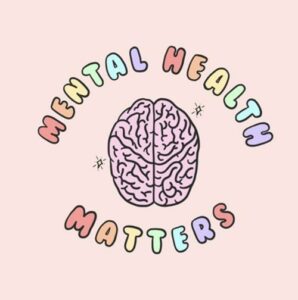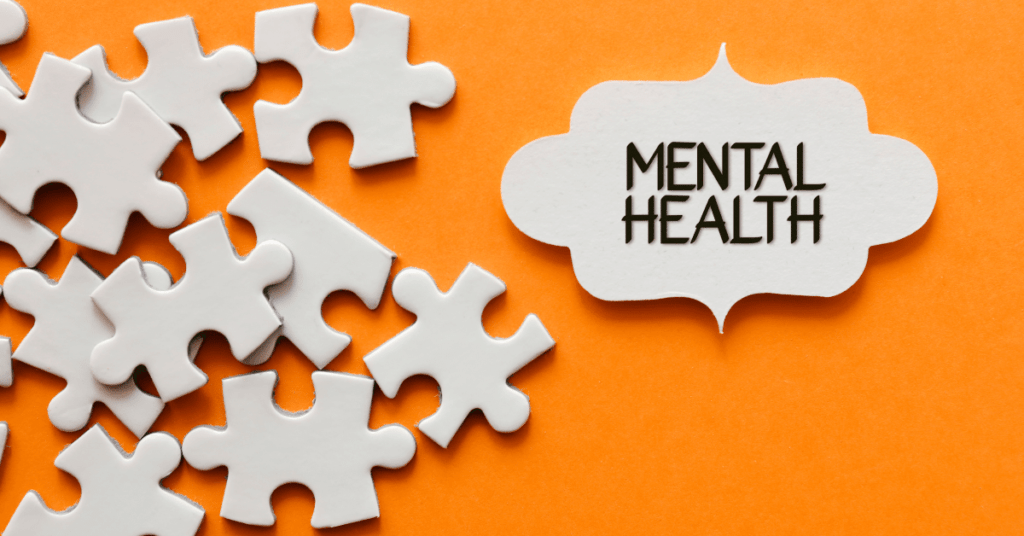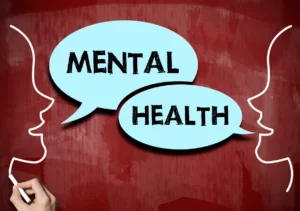Contents
- 1 30 Mental Health Tips
- 2
- 2.1 1. Start your day with some positive self-talk
- 2.2 2. Get enough sleep
- 2.3 3. Take a break during your commute
- 2.4 4. Drink plenty of water throughout the day
- 2.5 5. Take some time for yourself every day
- 2.6 6. Eat healthy foods
- 2.7 7. Get your mental health checked
- 2.8 8. Spend time alone with yourself every day
- 2.9 9. Don’t be afraid to ask for help
- 2.10 10. Give yourself time to adjust
- 2.11 11. Journal your thoughts and feelings
- 2.12 12. Replace negative thoughts with positive ones
- 2.13 13. Let go of anger
- 2.14 14. Stop thinking about what you “should” be doing
- 2.15 15. Stop putting pressure on yourself
- 2.16 16. Take a break from electronics
- 2.17 17. Connect with nature
- 2.18 18. Connect with others
- 2.19 19. Don’t compare yourself to others
- 2.20 20. Don’t worry about getting enough sleep each night
- 2.21 21. Stop taking everything so seriously
- 2.22 22. Don’t be ashamed about taking medication for your mental health concerns
- 2.23 23. Stop believing that emotions are a reflection of reality
- 2.24 24. Always Be grateful
- 2.25 25. Seek professional help if needed
- 2.26 26. Stop listening to negative people
- 2.27 27. Remember: every person goes through tough times
- 2.28 28. Make time for yourself each day
- 2.29 29. Remember that feelings are not facts
- 2.30 30. Never stop fighting for better mental health
- 3 Conclusion
30 Mental Health Tips
Mental health can be a sensitive topic, but that doesn’t mean we should shy away from it. Here are some tips to better your mental well-being, whether you’re trying to start the day off right or make the most out of your commute. Here are some mental health tips for those of us who are struggling with it.
1. Start your day with some positive self-talk
When you wake up, tell yourself something positive about yourself. It can be as simple as “I’m worth taking care of,” or “I’m capable of handling whatever comes my way today.” This sets the tone for the rest of your day and helps you to stay positive.
2. Get enough sleep
Not getting enough sleep can make you irritable and moody, making it harder for you to understand the needs of others (thus increasing interpersonal conflicts). Getting a good night’s rest also increases your physical well-being and mental acuity. Try going to bed at around 10:30 pm and waking up at 7 am to get the most out of your sleep.
3. Take a break during your commute
If you take public transportation, try to use that time to relax instead of stressing out about the day’s events. Close your eyes, take some deep breaths, and focus on letting go of any worries or concerns that are weighing you down.
4. Drink plenty of water throughout the day
Water detoxifies your body, flushes out any toxins that are present, and keeps you hydrated. It’s not only good for cleansing your system, it also stops dry skin, headaches, and fatigue (which can make everyday tasks more difficult).
5. Take some time for yourself every day
It should be an unwritten rule that all adults need to take some time out of their days to relax and de-stress. Whether it’s during your commute, after work, or before bedtime, make sure you carve out at least 15 minutes for yourself so you can get your mind off of things. Use this time to read, listen to music, or take a walk.
6. Eat healthy foods
 Eating unhealthy foods can have a negative impact on your mood and mental state. Junk food not only makes you feel sluggish and bloated, but it can also lead to feelings of depression and anxiety. Instead of that candy bar, eat a piece of fruit. Instead of getting takeout tonight, whip up some chicken and vegetables.
Eating unhealthy foods can have a negative impact on your mood and mental state. Junk food not only makes you feel sluggish and bloated, but it can also lead to feelings of depression and anxiety. Instead of that candy bar, eat a piece of fruit. Instead of getting takeout tonight, whip up some chicken and vegetables.
7. Get your mental health checked
If you’ve been feeling down, irritable, anxious, or hopeless lately, go to the doctor for an evaluation of your mental health. It could be a condition that can be treated or an underlying cause that needs to be addressed. Likewise, if you’re taking any medications for mental disorders, make sure your doctor is aware of ALL the other medications you’re taking (including over-the-counter drugs and supplements).
8. Spend time alone with yourself every day
This can be in the form of meditation, yoga, or any other type of self-care activity. This will help you to get in touch with yourself and give you time to contemplate life. It’ll also empower you to take control over your mental well-being, which is always a good thing.
9. Don’t be afraid to ask for help
If you’re feeling overwhelmed or like you can’t handle things on your own, don’t be afraid to ask for help from friends, family, or professionals. It’s not a sign of weakness; it’s a sign of strength. And remember, you’re not alone in this. Many people suffer from mental health problems, so don’t be ashamed to seek assistance.
10. Give yourself time to adjust
Changing your lifestyle – whether it’s through diet, sleep, or exercise – takes time. You won’t see results overnight, so be patient and keep at it. Rome wasn’t built in a day, and you can’t expect to overhaul your lifestyle overnight either. Persevere, and you’ll be rewarded in the long run.
11. Journal your thoughts and feelings

This is a great way to get your thoughts and feelings out in the open. It also helps you to track your progress, as you can look back on previous entries to see how far you’ve come. Not only is it therapeutic, but it’s also a great keepsake for yourself.
12. Replace negative thoughts with positive ones
When you find yourself thinking negatively, replace those negative thoughts with a positive one – no matter how forced it feels at first. It’s a simple trick but it works! Try to think about something that makes you happy every day and visualize the good outcomes coming to fruition.
13. Let go of anger
Holding onto anger is bad for your mental health. It leads to anxiety, stress, and depression. Always let go of any anger you have towards others or yourself – even if the person/situation that made you angry doesn’t deserve it. Anger can do more harm than good.
14. Stop thinking about what you “should” be doing
You don’t have to have it all figured out right now. There’s no timeline for adulthood. So stop trying to set goals that are unattainable just because you want to appear “responsible.” The best thing you can do is put your head down and work hard. Everything else will fall into place later on.
15. Stop putting pressure on yourself
Doing something perfectly isn’t important; doing it well is the main goal. So stop feeling bad that that report isn’t perfect or that you can’t produce art like you want to in your free time. Take pride in what you do and focus on doing your best, not on meeting some unattainable standard.
16. Take a break from electronics
Too much screen time can be detrimental to your mental health, causing anxiety, depression, and insomnia. So try to take a break from electronics every day (or at least every other day). Spend time outside, talk to friends and family, or read a book. Just unplug and relax for a while.
17. Connect with nature
Spending time in nature is great for your mental health! It helps to reduce stress, anxiety, and depression. So try to get outside as often as possible, even if it’s just for a few minutes each day. Take a walk in the park, watch the sunset, or listen to the rain. It’s therapeutic and grounding.
18. Connect with others
One of the best things you can do for your mental health is to connect with others. This could be through friends, family, a support group, or any other type of social activity. Being around others helps to reduce feelings of isolation and loneliness, which can be triggers for mental health problems.
19. Don’t compare yourself to others

Comparing yourself to others is never a good thing. It leads to feelings of inferiority and inadequacy, which are detrimental to your mental health. So stop comparing yourself to others and start celebrating what makes you, you! You are unique and special in your own way.
20. Don’t worry about getting enough sleep each night
If you’re worried about not getting enough sleep during the week, set aside some time on the weekends to catch up on lost zzzs (within reason). It’s better than not getting enough sleep during the week, which can increase your risk of mental health problems.
21. Stop taking everything so seriously
Mental health isn’t restricted to clinical disorders or illnesses. Everyone struggles with their mental health sometimes, even if it’s just once in a while. So learn to lighten up! Life is short and you don’t want to spend it always stressed or anxious.
22. Don’t be ashamed about taking medication for your mental health concerns
Taking medication is not a sign of failure – it’s just another tool in the box that can help you manage symptoms and lead a happier, healthier life. So never feel bad for taking medicine if that’s what you need. It’s for your well-being, not anyone else’s!
23. Stop believing that emotions are a reflection of reality
We all get carried away sometimes with how we feel, even though our feelings might not make much logical sense in the grand scheme of things. So try to step back and take a breath before you act. Chances are your emotions will pass soon, and you’ll be able to look back and laugh about what you did/said once the initial stress wears off.
24. Always Be grateful
 No matter how bad things seem at the moment, there’s always something to be grateful for. So take a few minutes each day to list off all the things you’re grateful for in your life. It can be big (like having a loving family) or small (like a delicious cup of coffee ). The more grateful you are, the happier and healthier you’ll be.
No matter how bad things seem at the moment, there’s always something to be grateful for. So take a few minutes each day to list off all the things you’re grateful for in your life. It can be big (like having a loving family) or small (like a delicious cup of coffee ). The more grateful you are, the happier and healthier you’ll be.
25. Seek professional help if needed
If your mental health concerns are causing you significant distress or interfering with your everyday life, it’s time to seek professional help. This could be through therapy, medication, or a combination of both. Don’t try to tough it out on your own – professional help is there to support you.
26. Stop listening to negative people
Negative people can drag you down and make your life miserable. If someone is constantly judging you, complaining about others, or making fun of you, then that person isn’t good for your mental health. So stop spending time with those negative people and find some positive ones instead!
27. Remember: every person goes through tough times
No one is immune to mental health problems, no matter how strong or successful they are. Celebrities have faced depression, anxiety, addiction – you name it! Everyone struggles with their mental health at some point.
28. Make time for yourself each day
Time to yourself is so important for your mental health. If you don’t make time for yourself, you’ll eventually feel frustrated or resentful of others. So try to set aside some time each day for something that makes you happy – whether it’s reading a good book, visiting with friends, or cuddling your pet.
29. Remember that feelings are not facts
Just because you feel a certain way, doesn’t mean that feeling is 100% accurate. Your feelings reflect your thoughts and experiences, but they won’t necessarily reflect what other people are thinking or doing at the moment.
30. Never stop fighting for better mental health
 Mental illness may not ever go away entirely, but you can learn to manage it through treatment and self-care. So never give up – keep fighting for better mental health, even on the days when it feels impossible.
Mental illness may not ever go away entirely, but you can learn to manage it through treatment and self-care. So never give up – keep fighting for better mental health, even on the days when it feels impossible.
Mental health is just as important as physical health, so make sure to take care of both! These 30 mental health tips are a great starting point but don’t stop here. Keep learning about mental health and finding ways to live your life happily and healthily.
Conclusion
In the 21st century, it is more important than ever to take care of your mental health. In this in-depth blog post on 30 mental health tips for living a mentally healthy life, you’ll learn how to fight back against negative thoughts and behaviors that may be holding you back from living a better life with less anxiety or stress. These cognitive neuroscience principles will work for anyone who wants to live their best possible lives – no matter what challenges they face! So don’t wait any longer: start implementing these strategies today so you can finally find peace with yourself and enjoy happiness every day.
If you are looking for affordable Online Counseling MantraCare can help: Book a trial therapy session



